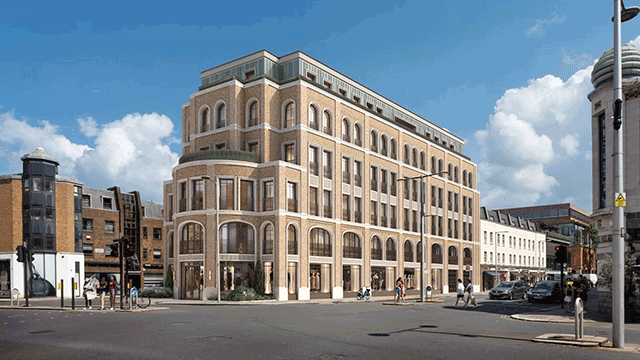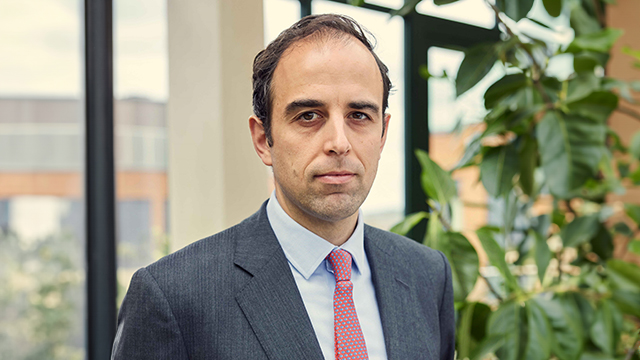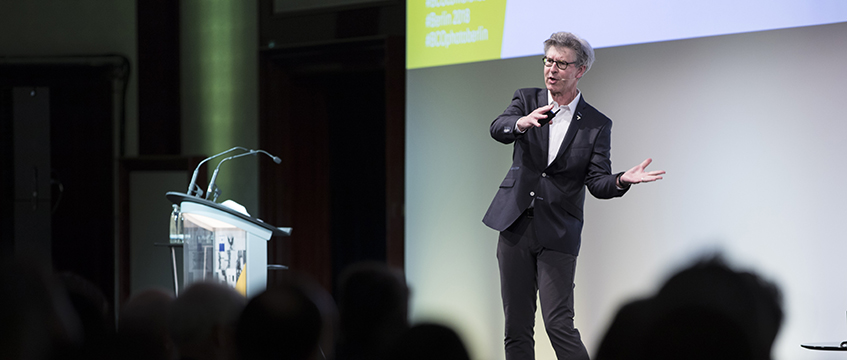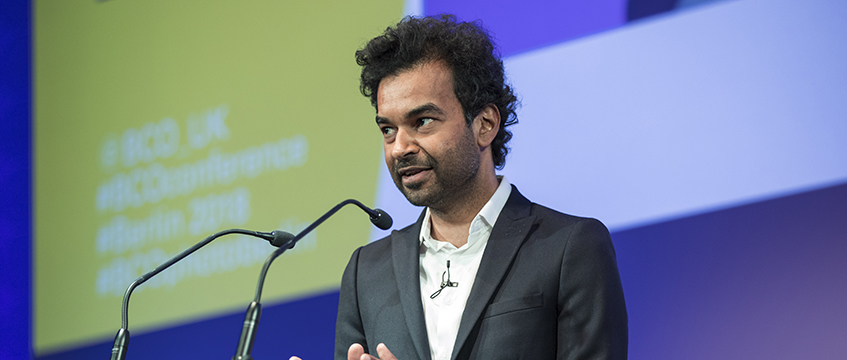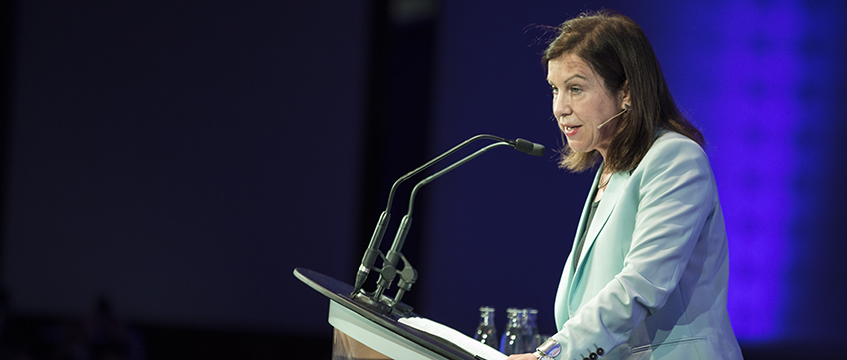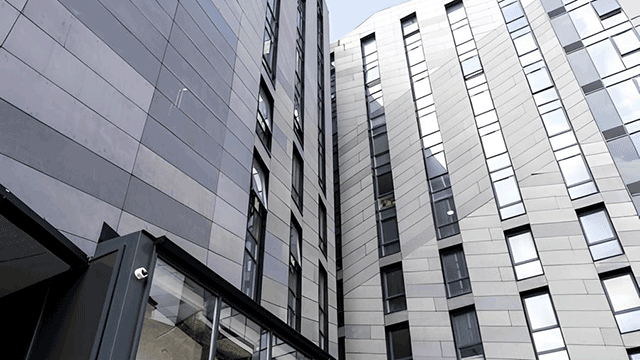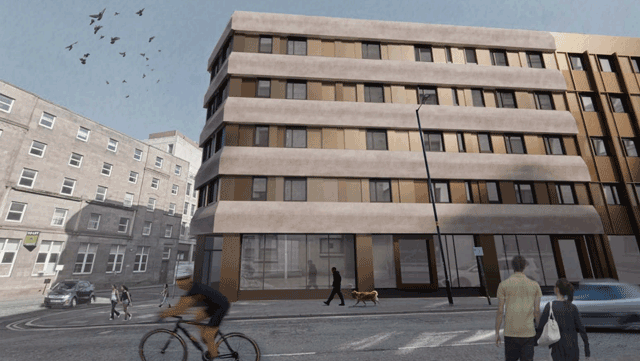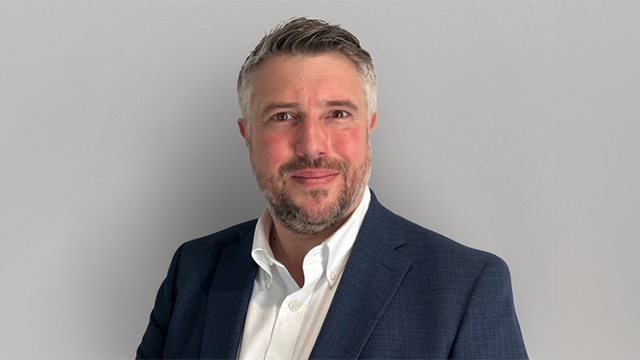Two weeks ago, the organisers of this year’s British Council for Offices (BCO) conference in Berlin pulled off something quite extraordinary. They took an industry-wide discussion point and they brought it to life.
Not by preaching, not by victimising and not by scaremongering, but by embracing their own theme of diversity and inclusivity so fearlessly that it was impossible not to feel the impact.
This was not an event about women in property. It was not event about men in property. It was an event about change in property.
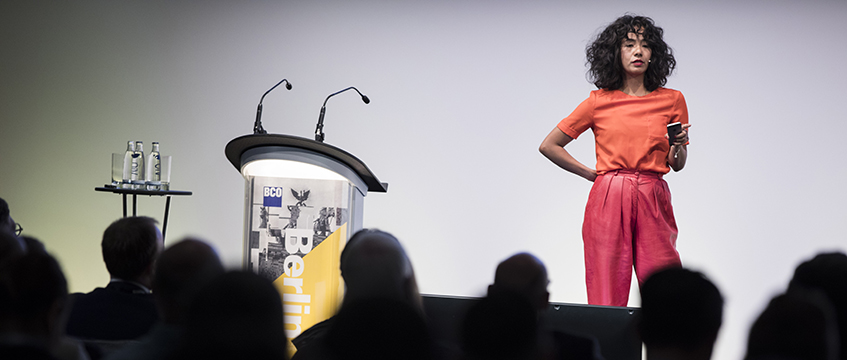
The difference between this conference and so many others nobly looking to address the same issue was quite simple: it cut through lip service, stats, corporate policies, quotas and party lines and it did something truly inclusive and brave.
It tackled the subject of diversity from an angle and perspective that was geared towards the audience; an audience made up – for the most part – of white, middle aged men.
Speaking to both sexes
For most of the 700 delegates, listening to a gender equality keynote delivered by a man was a first, but it worked because author and equality academic Michael Kaufman spoke to the whole room.
He spoke to women by identifying a new sense of frustration which, still unbeknown to many, does not always stem from a gender imbalance, but rather from some of the current rhetoric around correcting it.
“Too many people say to women ‘just lean in. That’s how you make it in a man’s world,’” he said.
“But that’s wrong. What we actually need to do is change the way the world works altogether and as men that means no longer running the show – I’m sorry about that. It means sharing the show.”
He spoke to men by delivering an honest, no-holds-barred account of the uncomfortable, unspoken expectations associated with masculinity.
“We have to be strong, we can’t ever be wrong, we must be powerful, we must stand our ground, we can’t show weakness, we can’t be sad, we never cry and we don’t get sick and why? Because we are men. Those are social pressures we will never, ever be able to live up to. And we all feel that way,” he said.
“I can see many of you nodding along, but you all checked to make sure the person sat next to you couldn’t see before you did.”
Practising diversity
Kaufman was joined on stage by Landsec’s former head of commercial Kaela Fenn-Smith and Centric lab director Araceli Camargo, and the session became the bedrock on which the rest of the conference programme was built on – although not in the way one might have expected.
For a start, it was the last time inclusivity was focused on explicitly, as the conference evolved into a masterclass in practising – rather than just discussing – diversity.
From BBC correspondents Lyse Doucet and Frank Gardner on terrorism, to commentator Janan Ganesh on why Brexit “isn’t a crisis” but rather “something a bit worse than that”, and entrepreneur Vanessa Lee Butz on “the pain of becoming robots in big cities when we need human interaction”, the stage was packed with speakers from around the world of all ages, races, genders and backgrounds.
They were all at the top of their game, and they gave the audience something that can often get lost at major industry events: a sense of wider context and perspective.
It was a reminder that real estate does not operate as an island and that there are wider issues at large, whether they be humanitarian, political, technological or sociological.
Such a broad mix of speakers and content following Kaufman’s bold opening fuelled a shift in behaviour, thinking and mood from the outset.
And all credit to conference organiser Katrina Kostic Samen, who ditched everything from the dress code to the annual sit-down conference dinner in favour of a warehouse party – all in the name of embracing change.
What the sector needs
Conferences about office design, the future of workspace and digital transformation are important.
They are well attended because they inform a huge sector – one that finances, designs and develops the urban fabric in which we work, live and play – on how best to carry on doing that job.
But for years these events have been too one-dimensional, focused on the delivery of an asset within an industry that ultimately designs for people, not objects.
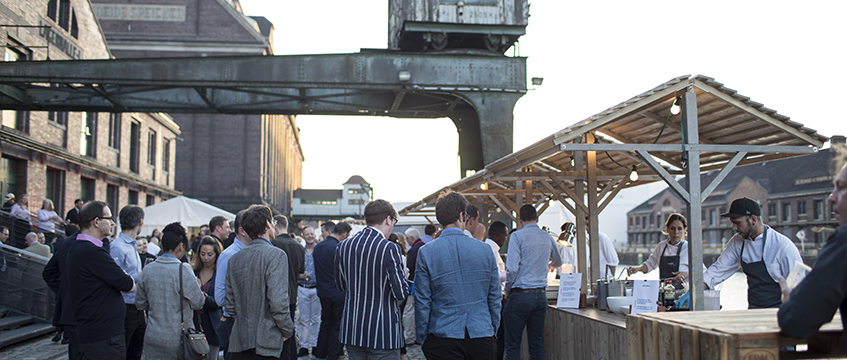
Without a sense of inclusivity and an acceptance of diversity, how can that be done successfully?
There was no sign of panels supplemented with token women following desperate, mass mail outs to find a suitable-ish candidate in a male dominated industry to hit a quota.
Equally, there was no great fanfare and not a slogan badge in sight because, as Kaufman himself said: “Gender equality is not about women winning and men losing. It is about a rebalance of the status quo.”
And that is true of any sort of inclusivity.
As the 2018 conference drew to a close, delegates – men and women alike – whooped and cheered as Kostic Samen delivered her closing remarks. It felt as though some long-standing barriers had been broken down. Perhaps for the first time on such a scale at an event of this kind where the audience is, by default, unbalanced.
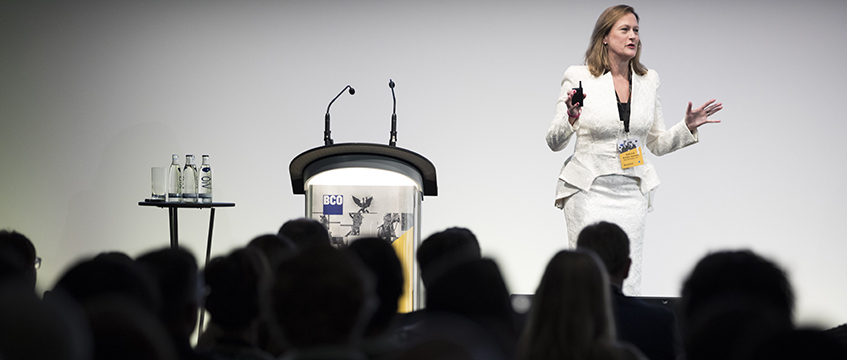
What the BCO did in Berlin was brave. It took guts to take real action – and especially to risk bringing a white, middle-aged, middle-class man on stage to talk to a room of white, middle-aged, middle-class men about gender equality.
But it was a risk worth taking because as long as we talk about change without acting, we will be talking forever and a day.
And in an industry hardwired to focus on, and crucially be driven by, progress, where is the sense in that?
To send feedback, e-mail emily.wright@egi.co.uk or tweet @EmilyW_9 or @estatesgazette




